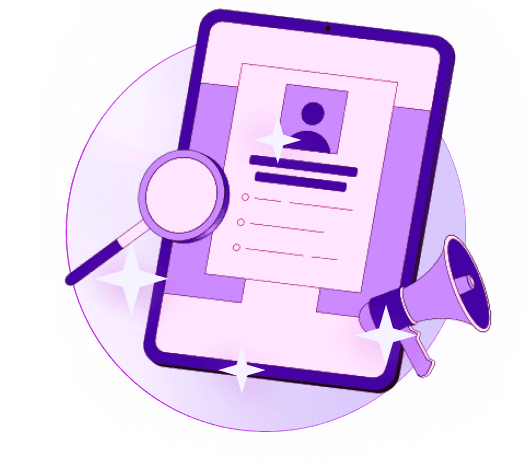Blogs
Articles

Boosting Conversion Rates with AI-driven Email Campaigns
In today's digital landscape, businesses are constantly seeking ways to enhance their marketing strategies. One powerful tool that has revolutionized the game is AI-driven email campaigns. By leveraging the capabilities of AI, companies can personalize content, optimize timing, and target specific audiences with unparalleled precision.
This cutting-edge approach not only increases conversion rates but also enhances customer engagement and loyalty. In this fast-paced era, the synergy between AI and email marketing is a game-changer for businesses looking to stay ahead of the competition.
Join us as we delve into the realm of AI-driven email campaigns and discover how you can harness this technology to drive success in your marketing efforts.
The Role of Artificial Intelligence in Email Marketing
The role of Artificial Intelligence (AI) in revolutionizing various aspects of marketing cannot be overstated. One area where AI has proven particularly beneficial is in email marketing. By leveraging AI technologies, businesses can significantly enhance their email marketing campaigns in several ways.
Enhanced Personalization
AI enables the creation of highly personalized and targeted email messages for individual prospects. By analyzing vast amounts of data, AI can provide valuable insights into buyer personas and conduct sentiment analysis to tailor content that resonates with each recipient.
Automation of Processes
AI streamlines workflows in email marketing by automating repetitive tasks and saving time. This automation allows sales teams to focus on more strategic activities such as building relationships with customers and closing deals, rather than getting bogged down in mundane tasks.
Improved Customer Engagement
AI-powered email marketing improves customer engagement by generating personalized content that is more likely to capture the recipient's interest. Moreover, AI provides valuable insights into customer behavior and preferences, enabling businesses to foster stronger relationships through hyper-personalization and lead scoring.
Predictive Analytics
AI in email marketing can also offer predictive analytics capabilities, allowing businesses to forecast customer behavior and optimize email campaigns accordingly. By analyzing past interactions and customer data, AI can predict future actions and tailor email content to maximize engagement and conversions.
A/B Testing and Optimization
AI algorithms can conduct A/B testing on email campaigns to determine the most effective strategies for different customer segments. Through continuous optimization based on real-time data analysis, AI can refine email content, subject lines, and send times to improve open rates, click-through rates, and overall campaign performance.
Spam Detection and Filtering
AI plays a crucial role in spam detection and filtering, ensuring that emails reach the intended recipients' inboxes and comply with anti-spam regulations. By analyzing email content, sender reputation, and recipient behavior, AI algorithms can identify and prevent potential spam emails, thereby maintaining a positive sender reputation and increasing email deliverability.
The integration of AI into email marketing operations brings a multitude of benefits, including enhanced personalization, streamlined processes, improved customer engagement, predictive analytics, A/B testing, and spam detection. Businesses that embrace AI technologies in their email marketing strategies gain a competitive edge by delivering more relevant and engaging content, optimizing campaign performance, and building stronger relationships with their target audience.
Enhancing Conversion Rates with AI
In the digital age, businesses are constantly seeking innovative ways to improve their conversion rates and boost their online presence. With the advent of Artificial Intelligence (AI) technology, marketers now have powerful tools at their disposal to analyze data, understand customer behavior, and optimize their strategies for maximum impact. In this blog section, we will explore how AI can be leveraged to enhance conversion rates effectively.
Targeted Content Creation
One of the key ways AI can help enhance conversion rates is through targeted content creation. By analyzing vast amounts of data, AI algorithms can identify patterns and trends in consumer behavior, allowing marketers to create personalized and relevant content that resonates with their target audience. This personalized approach can significantly increase engagement and drive conversions.
Behavioral Analysis for Segmentation
AI-powered behavioral analysis tools enable marketers to segment their audience based on their online behavior, preferences, and interactions with the brand. By understanding the unique needs and interests of different customer segments, businesses can tailor their marketing campaigns to deliver highly targeted messages that are more likely to convert. This level of segmentation and personalization can lead to higher conversion rates and improved customer satisfaction.
Predictive Analytics for Optimization
Another powerful application of AI in enhancing conversion rates is through predictive analytics. By leveraging machine learning algorithms, businesses can predict future customer behavior, identify potential areas of improvement, and optimize their marketing strategies accordingly. This proactive approach allows marketers to stay ahead of the competition, anticipate customer needs, and deliver the right message at the right time, ultimately driving higher conversion rates.
AI-driven Customer Experience Enhancement
Apart from the discussed benefits, AI plays a crucial role in enhancing customer experience. By analyzing customer interactions and feedback in real-time, AI systems can personalize the user experience, provide instant support through chatbots, and offer tailored recommendations, all of which contribute to improved customer satisfaction and loyalty.
Multichannel Optimization with AI
AI can optimize campaigns across various channels such as social media, email, and websites. AI algorithms can determine the most effective channel for reaching different customer segments, automate responses, and adjust strategies on the fly based on real-time data, ensuring a cohesive and personalized customer journey.
Ethical Considerations in AI Implementation
As businesses embrace AI for conversion rate optimization, it is essential to address ethical considerations. Transparency in data usage, ensuring algorithmic fairness, and safeguarding customer privacy are paramount to maintaining trust and credibility. Marketers should prioritize responsible AI practices to build long-term relationships with customers and uphold ethical standards.
The integration of AI technologies offers immense potential for businesses to enhance conversion rates, improve customer experience, and drive sustainable growth. By leveraging AI for targeted content creation, behavioral analysis, predictive analytics, multichannel optimization, and upholding ethical standards, businesses can achieve competitive advantages and foster lasting customer relationships in the digital era.
Conclusion
Harnessing the power of AI-driven email campaigns can significantly boost conversion rates for businesses of all sizes. By leveraging advanced algorithms to analyze customer data, personalize content, and optimize send times, companies can create targeted and engaging email campaigns that resonate with their audience. This not only improves conversion rates but also enhances customer satisfaction and loyalty.
As AI continues to evolve, incorporating it into email marketing strategies will be essential for staying competitive in the digital landscape.

Create Your Free Persana Account Today
Join 5000+ GTM leaders who are using Persana for their outbound needs.
How Persana increases your sales results
One of the most effective ways to ensure sales cycle consistency is by using AI-driven automation. A solution like Persana, and its AI SDR - Nia, helps you streamline significant parts of your sales process, including prospecting, outreach personalization, and follow-up.



